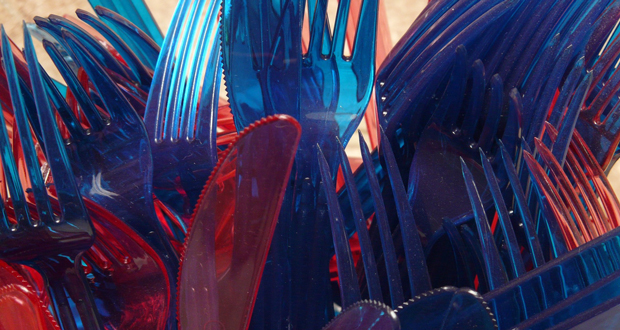From October, people won’t be able to buy these products from any business – this includes retailers, takeaways, food vendors and the hospitality industry.
Plastic pollution takes hundreds of years to break down and inflicts serious damage to our oceans, rivers and land. It is also a major source of greenhouse gas emissions, from the production and manufacture of the plastic itself to the way it is disposed.
These plans build on the Government’s previous efforts to eliminate avoidable plastic waste, including:
- One of the world’s toughest bans on microbeads in rinse-off personal care products announced in 2018
- Restrictions on the supply of single-use plastic straws, drink stirrers and cotton buds in 2020.
- Plastic Packaging Tax in April 2022 – a tax of £200 per tonne on plastic packaging manufactured in, or imported into the UK, that does not contain at least 30 per cent recycled plastic.
Environment Minister Rebecca Pow added: “Plastic is a scourge which blights our streets and beautiful countryside and I am determined that we shift away from a single-use culture.
“By introducing a ban later this year we are doubling down on our commitment to eliminate all avoidable plastic waste. We will also be pressing ahead with our ambitious plans for a deposit return scheme for drinks containers and consistent recycling collections in England.”
It is expected that banning these items will have a significant impact in reducing plastic waste and littering in England. Plastic cutlery, for instance, was in the top 15 most littered items in the country by count in 2020.
The Government is also carefully considering further measures around other commonly littered and problematic plastic items, including wet wipes, tobacco filters and sachets, following the call for evidence on this issue.
Future steps that could be explored include banning plastic in these items, and mandatory labelling on packaging to help consumers dispose of these items correctly. A new research project will also look into the impact of wet wipes on blockages in the sewage system, and will inform any future policy actions.
The ban will not apply to plates, trays, and bowls that are used as packaging in shelf-ready pre-packaged food items, as these will be included in the Government’s plans for an Extended Producer Responsibility Scheme – which will incentivise producers to use packaging that can be recycled and meet higher recycling targets. For example, this would include pre-packaged salad bowls and bowls filled with food at the counter of a takeaway.
Richard Swannell, interim CEO of WRAP, said: “We are in full support of this announcement by Defra, which marks important progress in the wholesale removal of problematic and unnecessary plastics that can end up as plastic pollution. WRAP is working with UK businesses to meet ambitious targets in this important area, and our latest results show an 84 per cent reduction in problematic and unnecessary single use plastics by our UK Plastics Pact members since 2018.
“We’re delighted to see these efforts being backed up by regulation, which will accelerate efforts to keep plastic out of the environment.”





